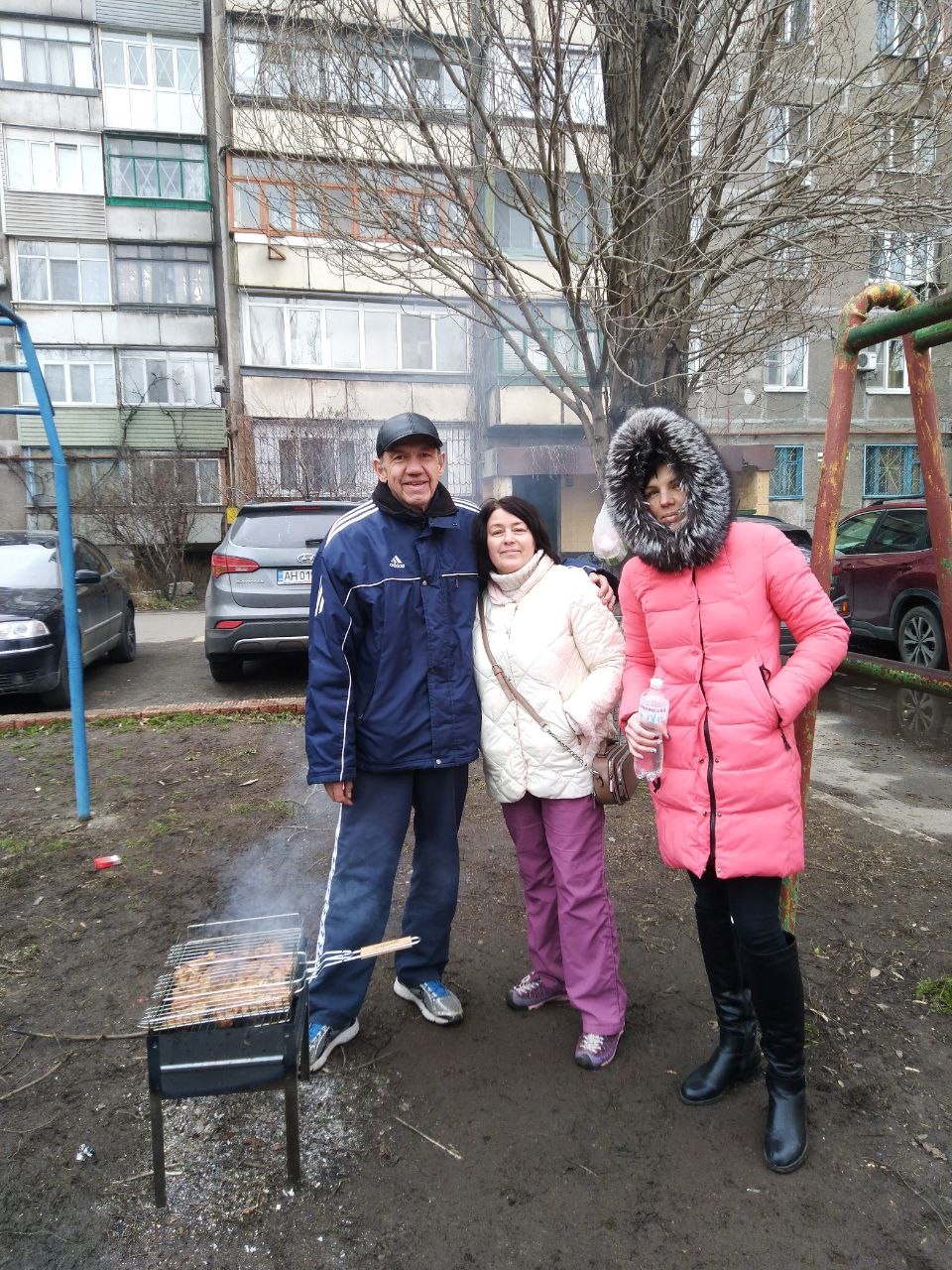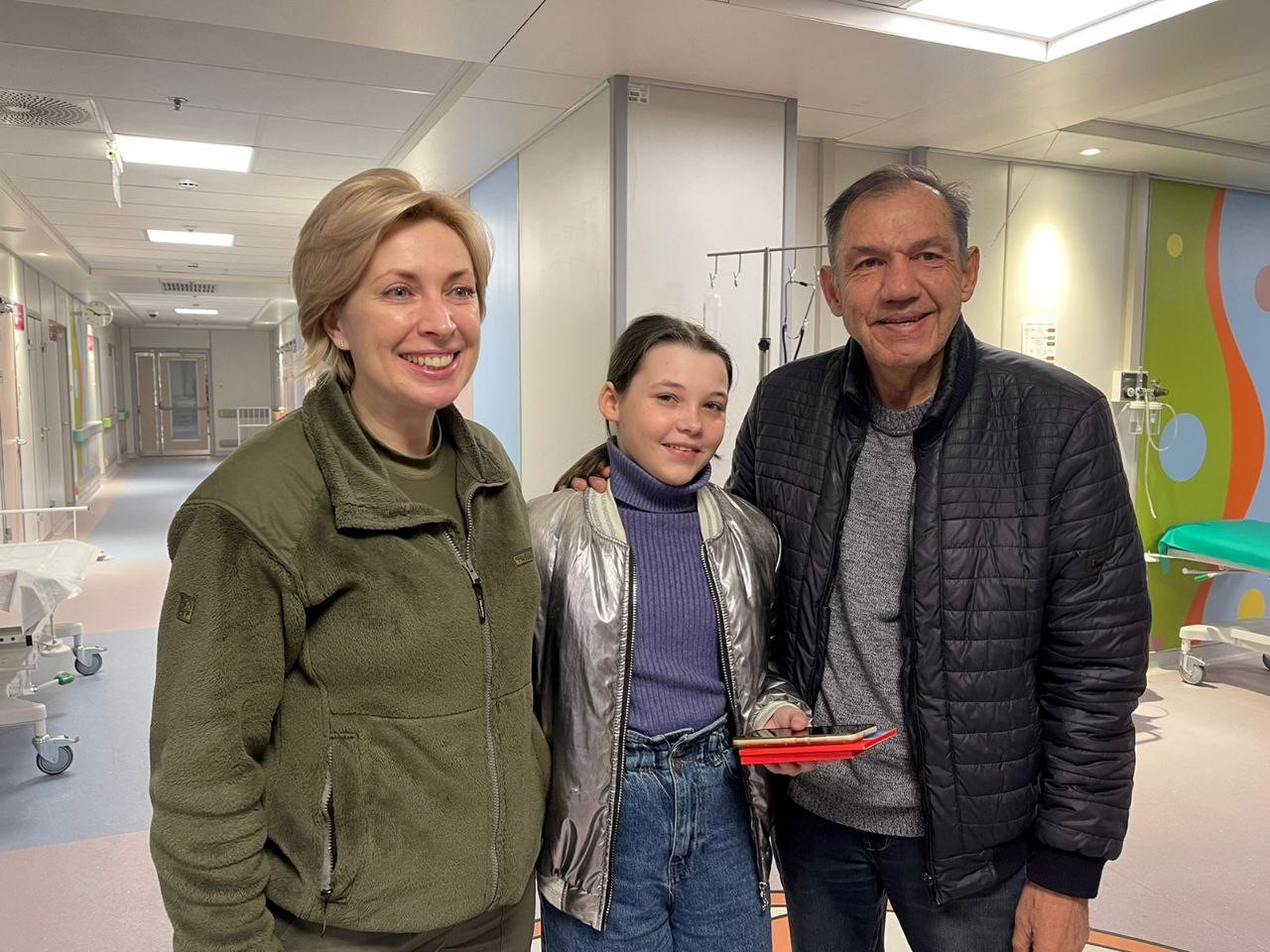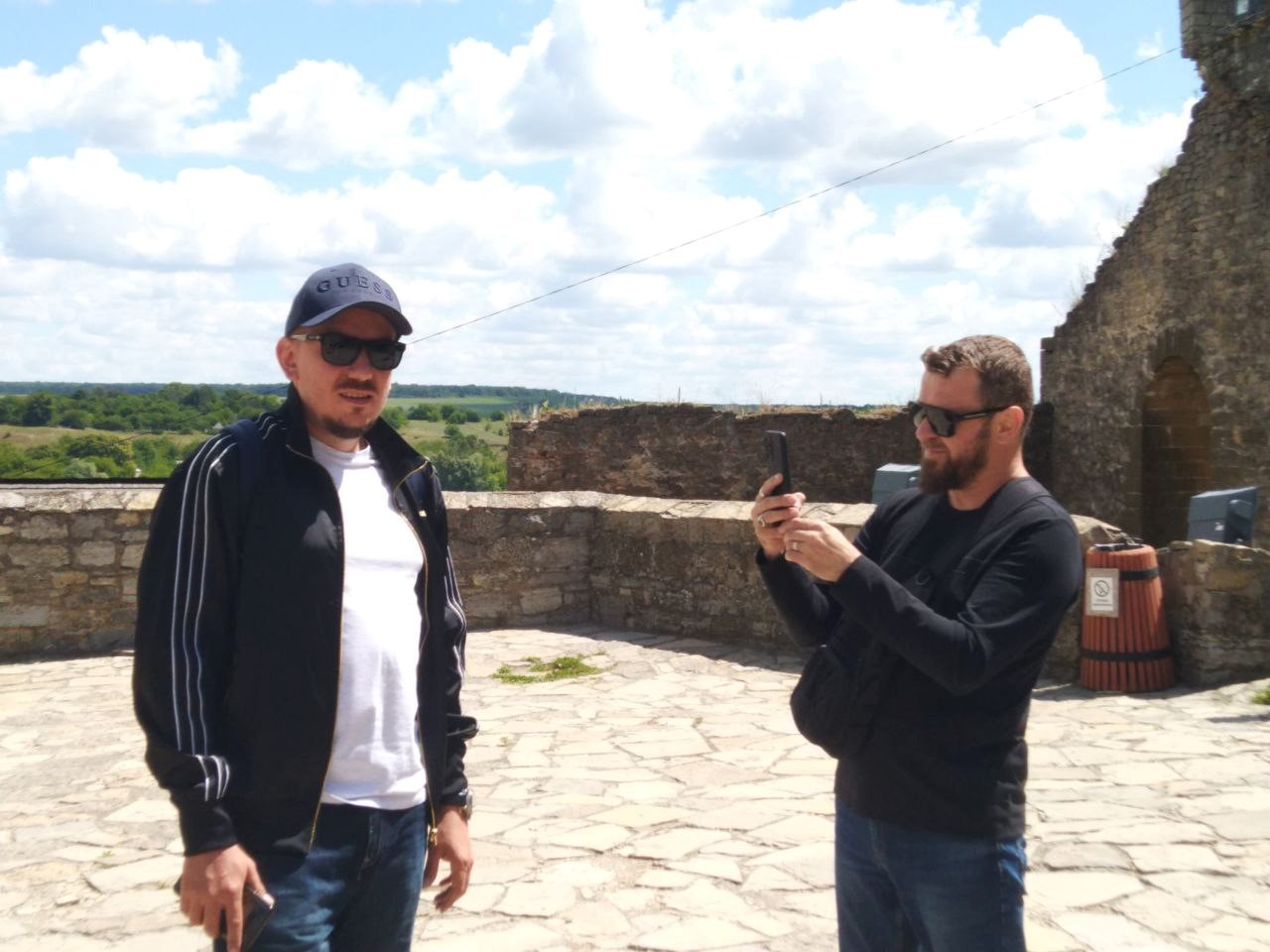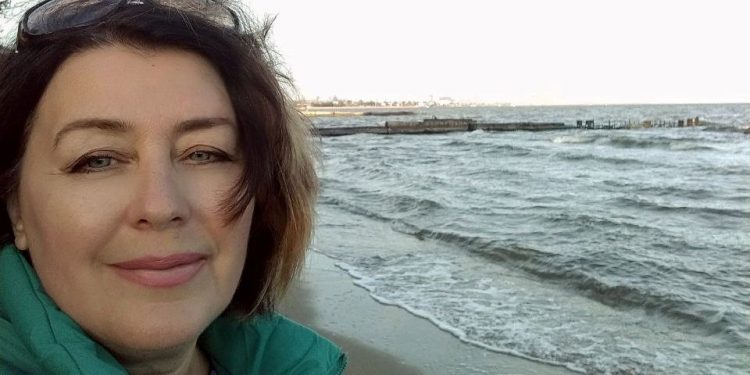Svitlana Kuzminska, known by this false name among the media community in Mariupol, has worked in the press service of the Mariupol Commercial Port in recent years. She has also functioned as a journalist for the local newspaper Priazovsky Rabochiy. In a conversation with journalists from NUJU [National Union of Journalists of Ukraine], she recounted her journey through the outbreak of the Great War, how it impacted her city, her displacement from her home, the anxiety she felt for her sons, and her courageous efforts to rescue her husband’s granddaughter from the self-proclaimed Donetsk People’s Republic “DPR.”
“I felt that something massive and terrifying was coming, but not to this extent.”
Svitlana was well aware of how ruthless the enemy of Ukraine could be. She vividly remembered how 2014 Russian tanks roamed her beloved Mariupol, how Russians shelled residential areas, and how innocent civilians of the city perished. The city was quickly liberated then, but the thought that the enemy might try to seize it again never left the journalist.
— Back in the fall of 2021, I already sensed that war was coming, and on the eve of the new year, I told my colleagues about it. But they laughed at me and said I was panicking. Honestly, I didn’t believe it, but the feeling that something massive and terrifying was on the horizon wouldn’t leave me. I knew you could expect anything from the Russians, but I couldn’t even imagine in my worst nightmares that they would be so cruel – killing, shooting, assaulting, and tormenting people. — recalls the journalist, consumed by the terrifying memories of the onset of the full-scale war.
It was surreal. When rockets hit one part of the city, mothers gathered their children in schools and kindergartens in another. Nobody wanted to believe that our everyday life was falling apart. For Svitlana Obedinska’s family, the explosions on February 24 also sounded distant. True horror-struck when enemy aircraft appeared in the sky.
— It became terrifying when the planes started flying. I knew they were flying to the western part of our city, where my sons were. I cried, couldn’t eat or sleep, — Svitlana continues. — The city quickly lost electricity, water, and gas. Later, communication was gone – I couldn’t reach my sons. There was no fuel, so the idea of leaving didn’t even come up. On March 14, my husband’s daughter called us in the morning and begged us to leave because a shell exploded near their house. We said we had no gasoline, but she promised to find some. Then my husband’s youngest granddaughter said, “Let’s leave, tomorrow, there will be a ‘bang.’” Somehow, she decided that our apartment would be blown up tomorrow. We quickly packed our things and left. Interestingly, we left a day before the humanitarian corridor was opened. How we managed to get through, only the Lord knows.

“Kira and another girl suffered severe shrapnel wounds and were taken to a hospital in the ‘DPR.’”
The family ended up in Berdyansk. With the help of local volunteers, they secured a few sleeping spaces in a college’s refugee shelter. They anticipated their sons’ departure from Mariupol. A flicker of hope arose when Svitlana’s son contacted her on her birthday, March 18, but the connection was lost for an extended period. Heartbroken, the journalist journeyed to Western Ukraine, where she was met with heartbreaking news.
— My stepson Yevhen, my husband’s son, died. I cannot convey the tragedy it was for us. Nobody knows for sure how it happened, only one thing is known – he suffered a gunshot wound to the head. We also learned that his granddaughter Kira ended up either captured or in a hospital in Donetsk in the ‘DPR.’ She was walking out of the city on foot with other people, and the dog that was with them triggered a tripwire. Kira and another girl suffered severe shrapnel wounds and were taken to a hospital in the ‘DNR.’ – Mrs. Obedinska recounts.
From then on, the family’s sole mission was to free Kira at all costs. They rallied volunteers, soldiers, and officials. After intense and draining months, they successfully reunited the child with her family.

— Through a friend’s help, we engaged Iryna Vereshchuk and the President’s Office to tackle the issue. Eventually, the President and his wife took charge. Aware of the countless children taken to ‘LPR,’[Luhansk People’s Republic] ‘DPR,’[Donetsk People’s Republic], Russia, and not returned, we were the first to successfully repatriate a child from there. We brought back Kira, who lost her mother shortly after birth and later her father too. There was also Illia, whose circumstances were the opposite – he lost his mother, and he now resides in Rivne. Many challenges, especially psychological ones, arose, but we sought experts and diligently worked through them. Kira resumed schooling and is excelling academically, which makes me proud. — says Svitlana.
However, right after successfully rescuing Kira from the clutches of the Russians, my sons in Mariupol found themselves in a dire situation.

— If only I had known what they would have to go through since our last meeting! The military stormed into my younger son Sasha’s apartment, where they saw the Ukrainian flag, and they really “pressured” him because of it. But my older son Dmytro suffered even more. He had a tattoo of the map of Ukraine with Crimea on his arm. When they saw it, they said, “If you don’t remove it by morning, we’ll chop off your hand.” — fighting back tears, says Svitlana Obedinska, mother of two and a journalist. — So, he and his friends went into some tattoo parlor, found a machine and ink, and tried to cover up the image somehow. That’s how they essentially saved his hand and his life. When they called and said they managed to get to Zaporizhia, I couldn’t believe my ears. It was true happiness!
“This was the 14th assistance center ‘I Am Mariupol’ in Ukraine. When they offered me a job, I didn’t hesitate.”
Following her experiences, Svitlana Obedinska discovered comfort in volunteering. She crafted camouflage nets and supported the military. She also contributed news to the “BukInfo” website in Chernivtsi. In October, she was given the opportunity to lead public relations at the “I Am Mariupol” assistance center.
— This was the 14th assistance center ‘I Am Mariupol’ in Ukraine. I had been waiting for this moment for so long, and when they offered me a job, I didn’t hesitate. Every day, I have the opportunity to communicate with my fellow citizens, help them, and support them. Frankly, you can’t even call this a job because I am reaching out to my people, which keeps me going, too. We are all scarred by the war, we lost our homes and our loved ones, unfortunately, but I’m glad I could return to my work, and I know I won’t leave it as long as I have the strength to work. — Svitlana Obedinska concludes.
This series, titled Executed Free Speech, is created as part of a project Drawing Ukrainian And International Audience’s Attention To Serious Violations Of Human Rights And Crimes Against Journalists And Mass Media By The Russian Federation, which is performed by the National Union of Journalists of Ukraine, with support from the Swedish non-profit organization Civil Rights Defenders.
JOURNALISTS ARE IMPORTANT. Stories of Life and Work in Conditions of War is a cycle of materials prepared by the team of the NUJU with the support of the Swedish human rights organization Civil Rights Defenders.
#CRD

 THE NATIONAL UNION OF
JOURNALISTS OF UKRAINE
THE NATIONAL UNION OF
JOURNALISTS OF UKRAINE
















Discussion about this post